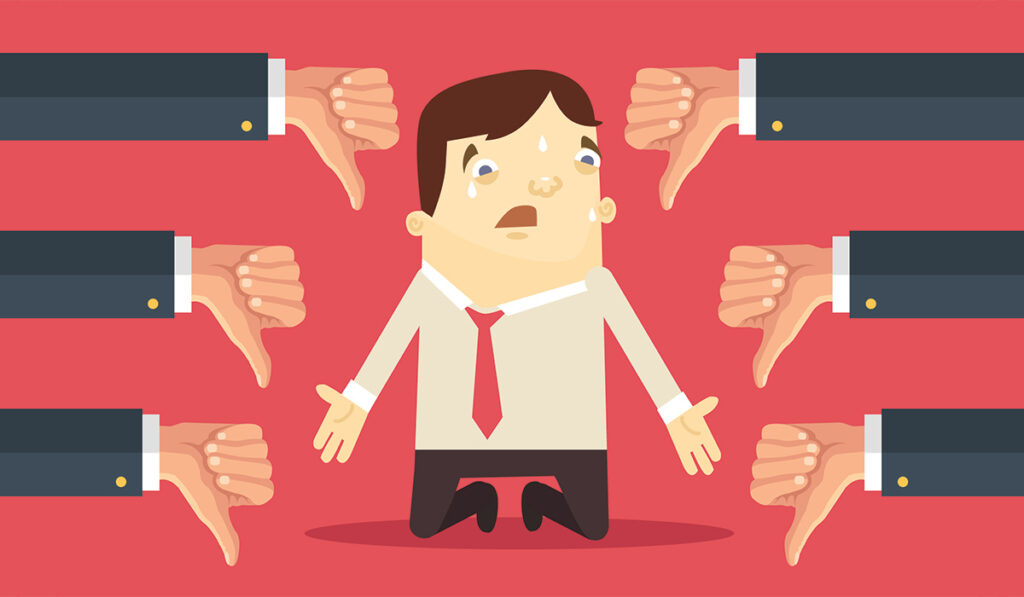Knowing whether the time is right or not to quit your job can be daunting. Many employees can feel confused or lost as there are issues that can make them feel as though they need to move on but there is something holding them back. Is this you? If so, read on to find out if now is a good time to move on.
Productivity has declined.
“Burn out” can occur when you complete the same tasks and duties continuously over a long period of time. Sometimes, burn out can lead to a decrease in productivity. This is a natural reaction which happens to many employees. The best way to solve the problem is to find a new challenge that helps you feel excited to work again.
Not being respected or appreciated in your job.

One signs that it will be time to leave your role will be feeling like you’re not respected/ appreciated. You might find yourself being constantly overlooked, and not given the opportunities others may be. When trying to put across your input or further the business with your ideas you may feel as though you are ignored. Being respected and appreciated are key when being in a job. If you feel you have neither it might be time to look for an alternative.
You feel there is no growth for you.
Another sign that it’s ready to jump ship is when you feel ‘you’ve hit a brick wall’. This can feel like you’re trying to evolve in your role and not getting anything from it. You might have spoken to a manager and asked about an opportunity you’d like involvement in or a promotion and being denied. Not having growth opportunities and career development can force you to be unhappy. Starting a new job search can open your eyes to what you deserve.
No work life balance.
Many people will overwork themselves without realising. Does your job take up all your time and you can’t find the energy to do anything else? This is a red flag to leave!
Your job should only be part of your life and not your whole life. If you feel you don’t get a real day off and you are missing out on occasions with friends, family or often get moaned at by loved ones that could be telling you more than you think.
Physical and mental health being affected.
If your workplace is taking a toll on either your physical or mental health, you should NOT be there. Stress in a job has become an issue with 1 in 6.8 people experiencing mental health problems within the workplace. If you and your friends or colleagues start to notice a change in your physical appearance for example, losing weight, feeling overworked/tired, as well as a change in your mental health such as when you start to lose motivation about coming into work and wanting to stay in the house or being more aggravated than usual – you need to stop and question your career. Getting in touch with HR is the best place you can have a confidential chat. If this does not change anything or they are not willing to help, guess what? It’s time to move on.

Only receiving negative criticism.
Do you feel like no matter how much of an effort you put into your job you only receive negative feedback?
There is constructive criticism and then there is being plain rude. Negative feedback can sometimes drive change and improvement. If this is constant and you feel like you are trying your best, it may be time to move to a company that can offer you the support you need.

What to do once you’ve decided to leave your job.
Read our sister brand Searchability’s candidate resource link on how to hand in your notice…
- Find out your company’s notice policy, convey to your manager that you no longer want to continue at your job.
- No matter how much of a bad time you had at your workplace don’t try to leave on a bad note and always be polite.
- Write an official letter of resignation and show gratitude to the opportunity you were given.
Next steps to take once you’ve left
- Update your resume/ CV– It is time to update your CV with your recent job experience and skills. Make sure to personalise it to the specific job you will be applying for.
- Prepare a cover letter – A cover letter will show employers that you went the extra mile, it is simple yet impressive.
Tailor your cover letter for each specific job you apply for.
- Update your Linkedin profile – Hiring managers will likely look over your LinkedIn profile when looking for potential candidates.
- Prepare for job interviews- Going into an interview full of knowledge of the role/company with answers to questions that will be commonly asked in that certain role. Always have good initiative and ask questions, this will make you stand out.
Are you looking for your next opportunity? Get in touch with one of our Recruiters today to take the ease out of your job search – [email protected] or call us on 01244 739 300.



